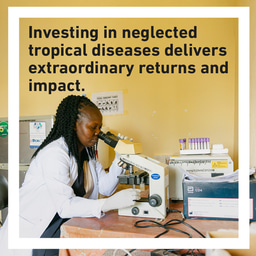Virtual Event 24th June - Deep Horizons: Discovering Life in the Abyss
Published in Ecology & Evolution

Date: Tuesday 24th June 2025
Time: 3PM CET | 9AM EDT | 2PM BST
Link to the event: https://cassyni.com/events/EB7MifDgf2y64oq2EXmVd7?sz5usw
Abstract | Only 10 – 25% of life has been discovered in the ocean, yet we are in the midst of a biodiversity crisis driven by human activities from local impacts such as overfishing to global threats such as climate change. Even the deep sea now faces exploitation in the form of fisheries directed at sensitive ecosystems such as seamounts but potentially in the future from mining for strategic metals and efforts to draw CO2 from the atmosphere. We are at a time of strategic decisions on whether to exploit deep-sea ecosystems and if so, how to manage such activities. The deep sea, defined as below 200m depth, comprises more than a billion km3 of water and the deep seafloor covers ~360 million km2, about 50% of the surface of the Earth. Most of it is covered in abyssal muds, but there are also ridges, seamounts and submarine plateaus, a complex array of ecosystems about which we are still making fundamental discoveries. These ecosystems host a remarkable diversity of animals, particularly smaller organisms that live on or in sediments of the continental slope and abyssal seafloor. We will explore some of the remarkable discoveries relating to life in the deep sea which have changed our understanding of where life may occur elsewhere in the universe, including our own Solar System. New studies on the Clarion Clipperton Fracture Zone, in the equatorial Pacific Ocean, an area rich in polymetallic nodules of interest for commercial mining, has illustrated the diversity of species in this extreme environment and the horizons of our knowledge.
Speaker | Prof. Alex Rogers is a marine ecologist with over 30 years of experience in exploring the biodiversity of hotspot ecosystems in the deep sea including seamounts, hydrothermal vents, and cold-water coral reefs. He has also worked on how to mitigate human impacts on deep-sea ecosystems and to conserve deep-sea life. He is Deputy Director of Strategic Science Programmes and Partnerships at the U.K.’s National Oceanography Centre and a Senior Research Fellow at Somerville College, University of Oxford.
Q&A | The presentation will be followed by a Q&A session with the opportunity for you to ask questions.
Sign up here | https://cassyni.com/events/EB7MifDgf2y64oq2EXmVd7?sz5usw





Please sign in or register for FREE
If you are a registered user on Research Communities by Springer Nature, please sign in